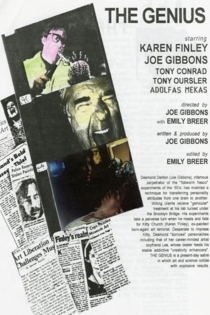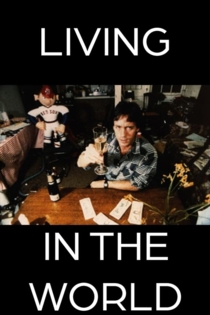
Joe Gibbons
2021Final Exit
Joe Gibbons
Joe Gibbons
An aged one is confronted with his options in blunt terms. Does he want to drag out his existence, increasingly infirm and a burden to his caretakers, or go quietly before resentment overwhelms sentiment? Does he wish to go on living, the quality of his life increasingly diminishing, or be euthanized? Would he prefer cremation or burial? This video confronts the issues of mortality and advancing decrepitude that faces even the friskiest.
Final Exit

How to Rob Banks for Dummies
Maxim Pozdorovkin
Joe Gibbons
After several bank robberies carried out in the name of art (and money), video artist and former MIT professor Joseph Gibbons leaves prison, re-enters the art world, and tries to go straight for the very first time.
How to Rob Banks for Dummies

Weltschmertz
Joe Gibbons
"Seldom has depression been played to such comic effect .... The camera sits on a tripod considering Gibbons as he hunches over his kitchen table, slugging vodka, chain smoking, and toying aimlessly with a half-eaten potato. Morose and giggling by turns, the filmmaker launches into a broken account of present unhappiness, which is broken by extended cut-aways to dying plants, freeway traffic, and TV soap operas." —J. Hoberman, The Village Voice
Weltschmertz

Confessions of a Sociopath
Joe Gibbons
Joe Gibbons, Spalding Gray
Confessions of a Sociopath is an autobiographical film on digital video and Super 8 film, conceived as a real-life version of Beckett’s Krapp’s Last Tape. In this film, Joe Gibbons plays a fictionalized version of himself as he discovers a roomful of Super 8 footage from his own life, detailing events he can no longer recall. This footage shows his earlier film experiments, his descent into destructive behavior, and his “bottoming out” on drugs and alcohol. At a certain point, the films are replaced by random photos, police records, and psychiatric hospital records.
Confessions of a Sociopath
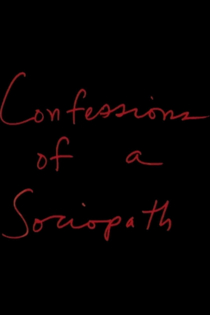
Elegy
Joe Gibbons
Joe Gibbons
It’s the first day of autumn, and Gibbons can already smell death in the air. Leading us and his dog Woody on a walk through a cemetery, Gibbons voices his obsessive thoughts of death and destruction. Waxing weirdly philosophical, Gibbons satirically tries to impress the concept of mortality on his dog; the video, shot in Pixelvision, approximates his dog’s black-and-white vision.
Elegy

Spying
Joe Gibbons
Spying is equal parts diary film, structural film and conceptual film. The filmmaker “spies” on neighbors, passersby and day workers—whomever is visible from the vantage point of his camera as he gazes across the San Francisco cityscape. The film is a subjective portrait of the neighborhood: the routines of the inhabitants, their unconscious gestures of domesticity, an intimate look into the private moments of strangers as they are caught unawares by the voyeurism of Joe’s camera.
Spying
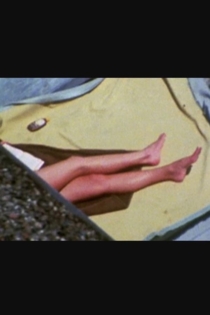
Sabotaging Spring
Joe Gibbons
Joe Gibbons
Gibbons enters the woods to begin his destructive campaign against spring, snapping the buds off trees while babbling maniacally. SABOTAGING SPRING is an impressionistic peek at Gibbons’s paranoid fancy; he explains the facts of life, evolution, and whistling to his dog Woody.
Sabotaging Spring
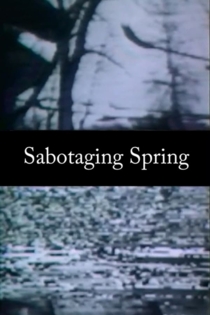
The Genius
Emily Breer, Joe Gibbons
Joe Gibbons, Karen Finley
A ramshackle underground SF satire set and shot in the self-absorbed art world of lower Manhattan, written, produced, and directed by Joe Gibbons, who also plays one of the lead parts. Gibbons plays a mad scientist who's developed a technique for transferring personalities from one person's body to another; he becomes obsessed with an outlaw artist (played by performance artist Karen Finley) who destroys paintings in various galleries as a form of anarchist, anticapitalist protest.
The Genius
